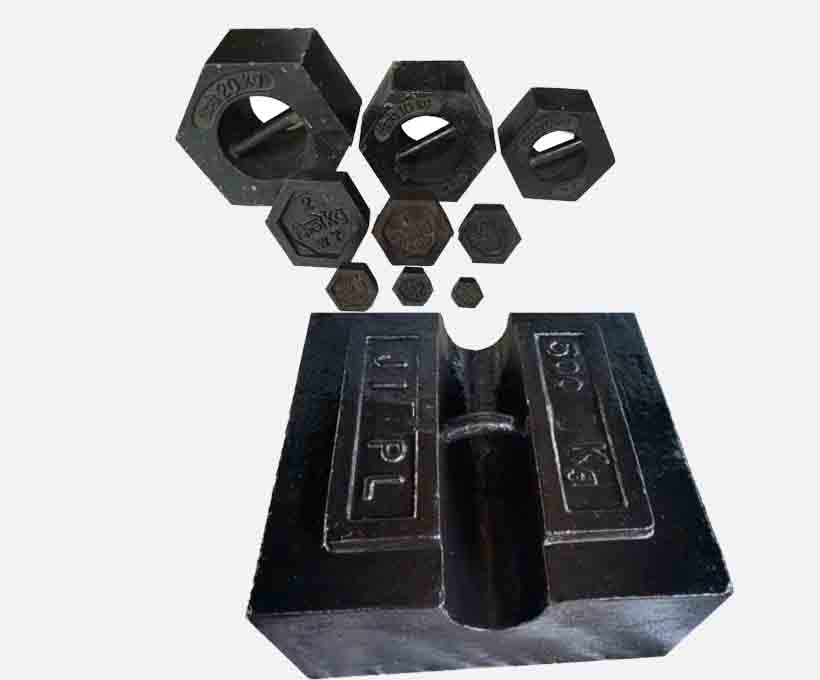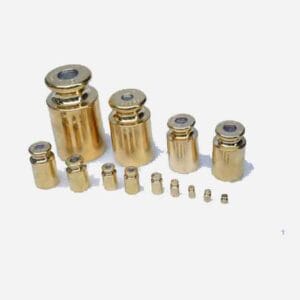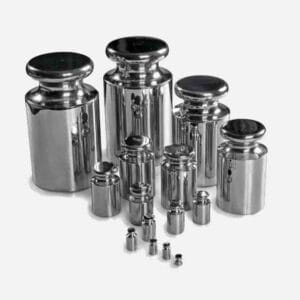Timeless and reliable, these dense weights are precision-crafted for accurate measurements, making them an enduring choice for any calibration or fitness regimen. Their durability ensures they'll serve you faithfully for years to come. Cast Iron weights are available from 50g to 1t in 3 grades from 2 accuracy classes.
Cast iron test weights are precision weights used for calibration and testing of weighing scales and balances. They are known for their durability, stability, and accuracy. Here's an outline to explore the features and applications of cast iron test weights:Giribrothers.in

- Introduction to Cast Iron Test Weights
- The purpose of cast iron test weights in the cast iron test weights calibration and testing of weighing equipment.
- Highlight their importance in ensuring accurate measurements.
- Material Composition and Construction
- The cast iron test weights use of cast iron in the construction of test weights.
- The material contributes to stability and longevity.
- Precision and Accuracy
- The cast iron test weights precision and accuracy standards met by cast iron test weights.
- The importance of high accuracy in calibration procedures.
- Classifications and Standards
- Different classifications and standards for cast iron test weights (e.g., OIML, ASTM).
- These classifications determine their specific applications.
- Weight Variations and Tolerances
- The cast iron test weights range of weight variations and tolerances available in cast iron test weights.
- These variations suit different calibration needs.
- Surface Finish and Corrosion Resistance
- Highlight the cast iron test weights importance of a smooth surface finish for accurate calibration.
- Discuss any corrosion-resistant coatings or treatments applied to enhance durability.
- Handling and Storage Features
- Discuss features designed for easy handling and storage of cast iron test weights.
- Explore options like lifting handles, storage cases, or stacking capabilities.
- Calibration Procedures and Traceability
- Explain the cast iron test weights calibration procedures for cast iron test weights.
- Discuss the importance of traceability to international standards.
- Applications in Various Industries
- Explore the cast iron test weights diverse industries where cast iron test weights find applications.
- Discuss specific use cases in laboratories, manufacturing, and quality control.
- Compatibility with Different Scales
- The cast iron test weights compatibility of cast iron test weights with various types of weighing scales and balances.
- Their use in calibrating analytical balances, precision scales, and industrial scales.
- Maintenance and Care Guidelines
- Provide guidelines for the cast iron test weights proper maintenance and care of cast iron test weights.
- To ensure their long-term accuracy and reliability.
- Certifications and Compliance
- Certifications cast iron test weights and compliance with international standards.
- Highlight the importance of using certified weights for accurate calibrations.
- Cost-Effectiveness and Long-Term Investment
- The cost-effectiveness of cast iron test weights in the context of their durability and long-term performance.
- They cast iron test weights represent a sound investment for calibration needs.
- User Testimonials and Industry Feedback
- Share testimonials from users who have found success using cast iron test weights.
- Provide insights into their experiences with calibration and testing processes.
- Future Trends in Test Weight Technology
- Emerging trends and potential future developments in test weight technology.
Features
- Export Quality in M2 Accuracy Class : - Smooth Finish ,free form blow holes & defects.
- Superior Quality C.I weights, in M3 Accuracy Class - Semi Smooth Finish . free from blow holes & defects.
- C.I weights M3 Accuracy Class - Rough Finish.
- Material Composition:
- Exploring the composition of cast iron test weights, including the specific types and percentages of elements used in their production.
- Manufacturing Process:
- Detailing the processes involved in manufacturing cast iron test weights, from the initial casting to finishing and calibration.
- Weight Classes and Tolerances:
- Discussing the cast iron test weights different weight classes and tolerances that cast iron test weights adhere to, as per industry standards and regulations.
- Calibration Procedures:
- Describing the cast iron test weights calibration procedures for cast iron test weights, including the equipment and standards used to ensure accuracy.
- Usage in Calibration Labs:
- Exploring how cast iron test weights are utilized in calibration laboratories for verifying and calibrating various weighing instruments.
- Maintenance and Handling:
- Providing guidelines on the proper maintenance and handling of cast iron test weights to ensure longevity and accuracy.
- Comparison with Other Materials:
- Comparing cast iron test weights with weights made from other materials, discussing the advantages and disadvantages of each.
- International Standards Compliance:
- Discussing how cast iron test weights comply with international standards, such as those set by organizations like OIML (International Organization of Legal Metrology) or NIST (National Institute of Standards and Technology).
- Specialized Applications:
- Exploring scenarios where cast iron test weights are preferred or required, especially in industries with specific environmental conditions or weight requirements.
- Corrosion Resistance:
- Discussing the corrosion resistance properties of cast iron test weights and any coatings or treatments applied to enhance durability.
- Impact on Weighing Instruments:
- Examining how the cast iron test weights use of cast iron test weights can impact the calibration and accuracy of various weighing instruments.
- Customization Options:
- Exploring any customization options available for cast iron test weights, such as engraved markings or special shapes for specific applications.
- Transportation and Storage Guidelines:
- Providing guidelines cast iron test weights on how to safely transport and store cast iron test weights to prevent damage and maintain accuracy.
- Quality Assurance and Certifications:
- Discussing the cast iron test weights quality assurance processes and certifications that ensure cast iron test weights meet the required standards.
- Lifecycle and Replacement:
- Exploring the cast iron test weights typical lifecycle of cast iron test weights and considerations for replacement or recertification over time.
- Weighing Scale Calibration:
- The primary application of cast iron test weights is in the calibration of weighing scales, including laboratory balances, industrial scales, and commercial weighing devices. These weights serve as reference standards to verify the accuracy of the scale's measurements.
- Quality Control and Compliance:
- Industries such as pharmaceuticals, food and beverage, and manufacturing rely on precise weighing for quality control. Cast iron test weights are used to ensure that weighing equipment complies with industry standards and regulatory requirements.
- Laboratory and Scientific Research:
- Laboratories, research facilities, and scientific institutions use cast iron test weights to calibrate analytical balances and other precision weighing instruments. Accurate measurements are critical in scientific experiments and research studies.
- Material Testing:
- Cast iron test weights are employed in material testing laboratories to calibrate and verify the accuracy of instruments used for measuring the weight of materials. This is important in industries like construction, where materials must meet specific weight specifications.
- Commercial Trade and Legal Metrology:
- In trade and commerce, where goods are sold by weight, legal metrology standards mandate the accurate calibration of weighing scales. Cast iron test weights are essential tools for ensuring fair and standardized trade practices.
- Shipping and Logistics:
- Calibration of weighing equipment in shipping and logistics is critical to accurately determine the weight of goods being transported. Cast iron test weights are used to verify the precision of truck scales, conveyor belt scales, and other equipment in the logistics chain.
- Aerospace and Defense:
- Precision weighing is crucial in aerospace and defense applications, where components and materials must meet stringent weight specifications. Cast iron test weights play a role in calibrating scales used in these industries.
- Education and Training:
- Cast iron test weights are valuable tools in educational settings, providing students with hands-on experience in calibration procedures and the principles of accurate weighing. They are commonly used in metrology and measurement courses.
- Retail and Commercial Weighing:
- Supermarkets, grocery stores, and retail establishments use cast iron test weights to calibrate checkout scales. Ensuring the accuracy of these scales is essential for fair and transparent commercial transactions.
- Environmental Testing:
- In environmental testing laboratories, where precise measurements are crucial for analyzing samples and pollutants, cast iron test weights are employed to calibrate analytical balances and scales.
Note
All weights will be accompanied by Weights & Measures Certificate ,from the state of origin.




somnath –
REVIEWS ACROSS WEB
https://www.facebook.com/giribrothers1973/